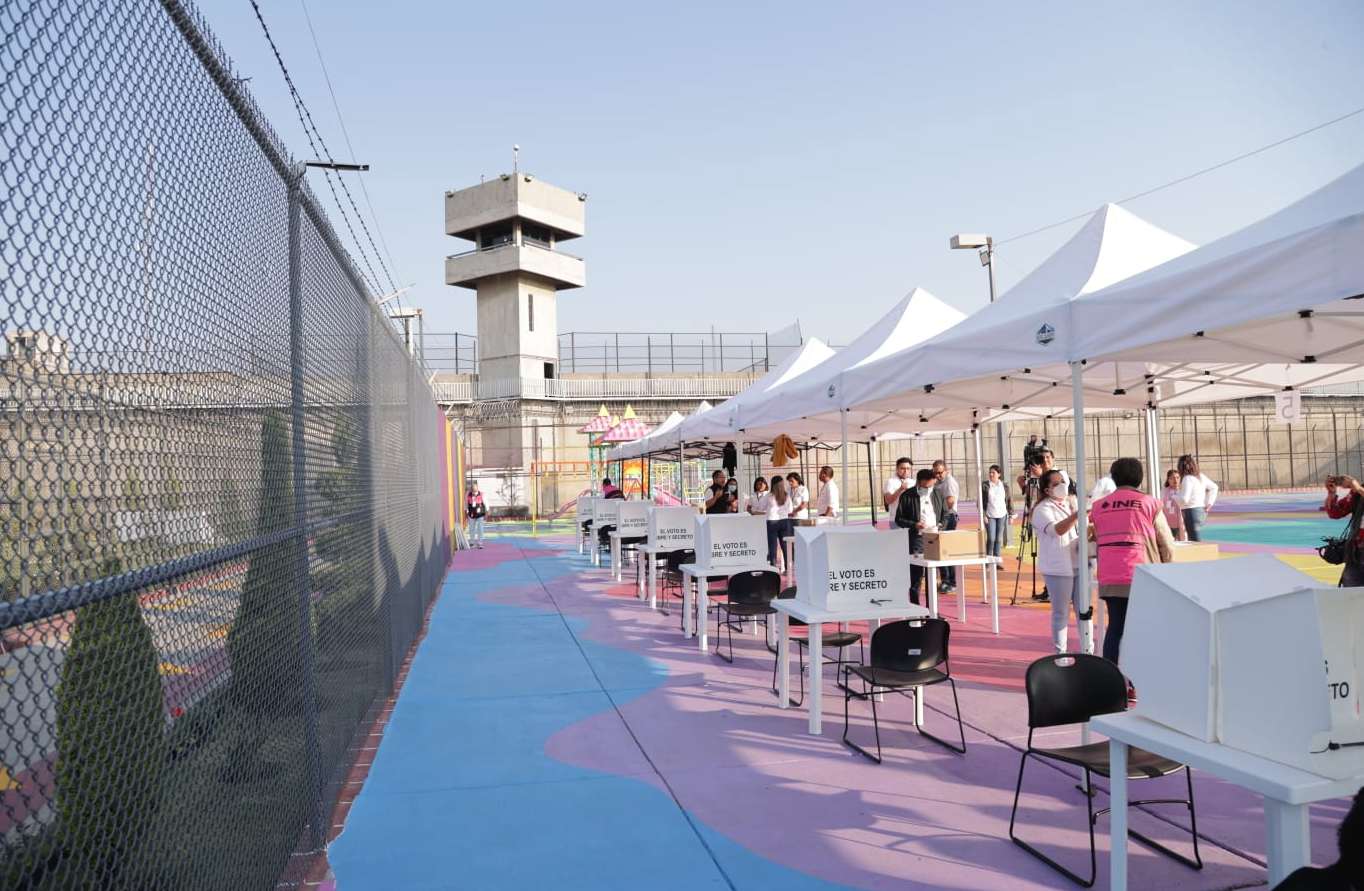On October 2, 2025, we held a discussion with women deprived of liberty (PPL) at the Hugo Morales Bizama School of the San Miguel Women’s Penitentiary Center in Santiago, Chile. It was a deeply political experience, not only because of the topic — “the right to vote” — but because it revealed a fundamental contradiction in our democracies: how can we speak of full citizenship in contexts where part of the population is systematically rendered invisible?
Many of the women present recognized the distance that separated them from institutional politics, but they were also fully aware of their rights. This tension between practical exclusion and formal recognition led us to a question that transcends national borders: what is the situation of incarcerated persons in Latin America with respect to their right to political participation?
Politics and citizenship beyond the walls
Electoral participation is one of the central mechanisms of democratic legitimacy. Robert Dahl noted that democracy rests on the “effective inclusion” of all members of the political community. However, Latin American democracies face a paradox: while their constitutions enshrine citizen equality, they maintain restrictions that, in practice, strip those in prison of political agency — even when they have not lost their civil rights.
The electoral exclusion of PPL is often justified on moral grounds — as the temporary loss of rights for having broken the law. But this punitive view conflicts with the principles of representation and the universality of suffrage. As the renowned scholar David Beetham warns, a democracy is stronger the more it succeeds in including those at its margins. In this sense, the right to vote for PPL becomes a thermometer of the maturity and inclusiveness of our democracies.
What’s happening across the region
Latin America presents a mosaic of regulations that reflect both legal traditions and political conceptions of citizenship.
In Argentina, since 2007, the National Electoral Code allows individuals in pretrial detention to vote if registered in the Registry of Voters Deprived of Liberty. This represents a significant step toward inclusion, although those serving final sentences remain excluded. Chile has advanced slowly. Only in the 2022 plebiscite was the vote implemented for people in pretrial detention or serving sentences of less than three years and one day, through a joint effort between the Electoral Service and the Prison Administration. Although the number was modest — around one thousand voters — it set an important institutional and symbolic precedent.
In Costa Rica, the 1949 Constitution guarantees the vote to every person over 18, except in cases of explicit suspension of political rights. In practice, PPL can vote inside prison facilities, reflecting a stronger understanding of citizenship as an inalienable right. Ecuador also recognizes suffrage for those without a final sentence. According to the Democracy Code, individuals under precautionary measures or without a definitive conviction may vote voluntarily in their detention centers. Meanwhile, Peru maintains the vote for those in pretrial detention, though its implementation faces logistical and informational challenges that limit the effective exercise of this right.
Democracy and exclusion: an unresolved debt
From a comparative perspective, the right to vote for PPL reveals two persistent patterns in Latin America. The first is normative asymmetry: legal frameworks vary significantly between countries, reflecting differing views on the relationship between citizenship, punishment, and social reintegration. The second is the gap between formal recognition and effective implementation. Although several countries allow voting, in practice administrative obstacles, institutional uncoordination, and social stigma hinder its realization.
The core issue is political, not merely legal. If suffrage is an act of belonging, denying the vote to part of the population — especially to those without a final conviction — reinforces their social and symbolic exclusion. In the words of Charles Tilly, this represents a “process of de-democratization” that weakens the density of citizenship ties within the state.
Final reflection
Guaranteeing the right to vote for incarcerated persons is not an act of indulgence but an affirmation of the most basic democratic principles. In societies marked by deep structural inequalities, democracy is measured not only by the participation of majorities but by its capacity to include those on the margins.
Prisons, more than spaces of punishment, should be arenas where democracy is put to the test. Allowing PPL to vote acknowledges that citizenship does not end behind walls — it transforms into a demand for justice, dignity, and reintegration. Ultimately, expanding suffrage rights in these contexts strengthens the legitimacy of Latin American political systems, reminding us that democracy is defended not only at the ballot box but also in the places where the state decides who can — and who cannot — be a citizen.
*Machine translation, proofread by Ricardo Aceves.














